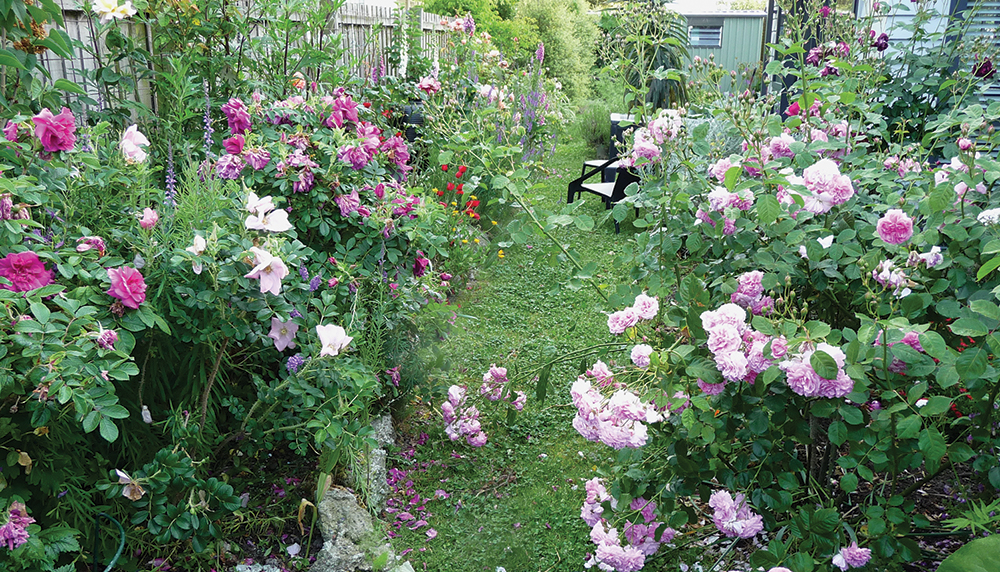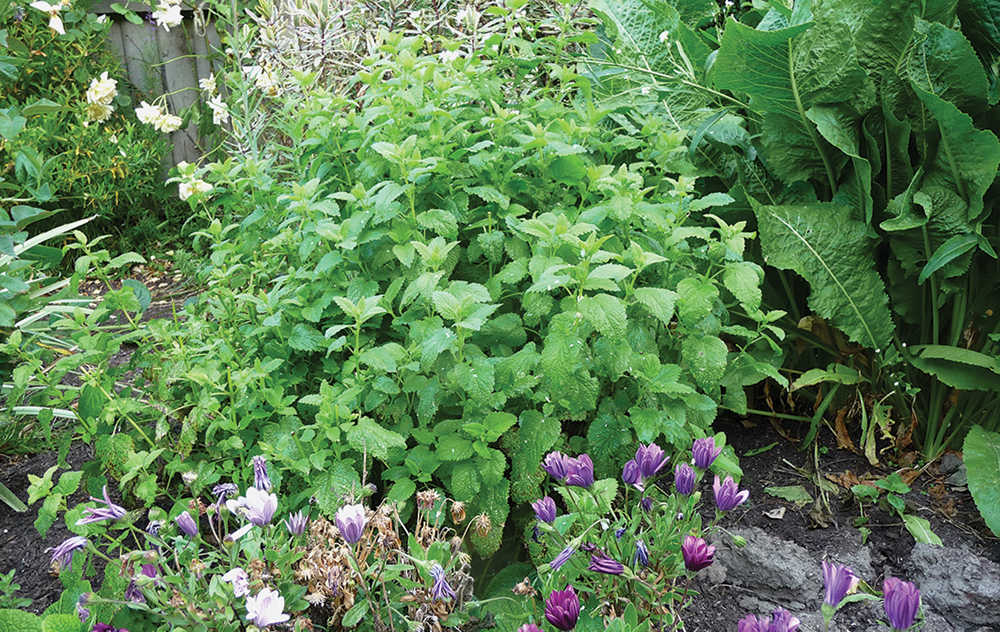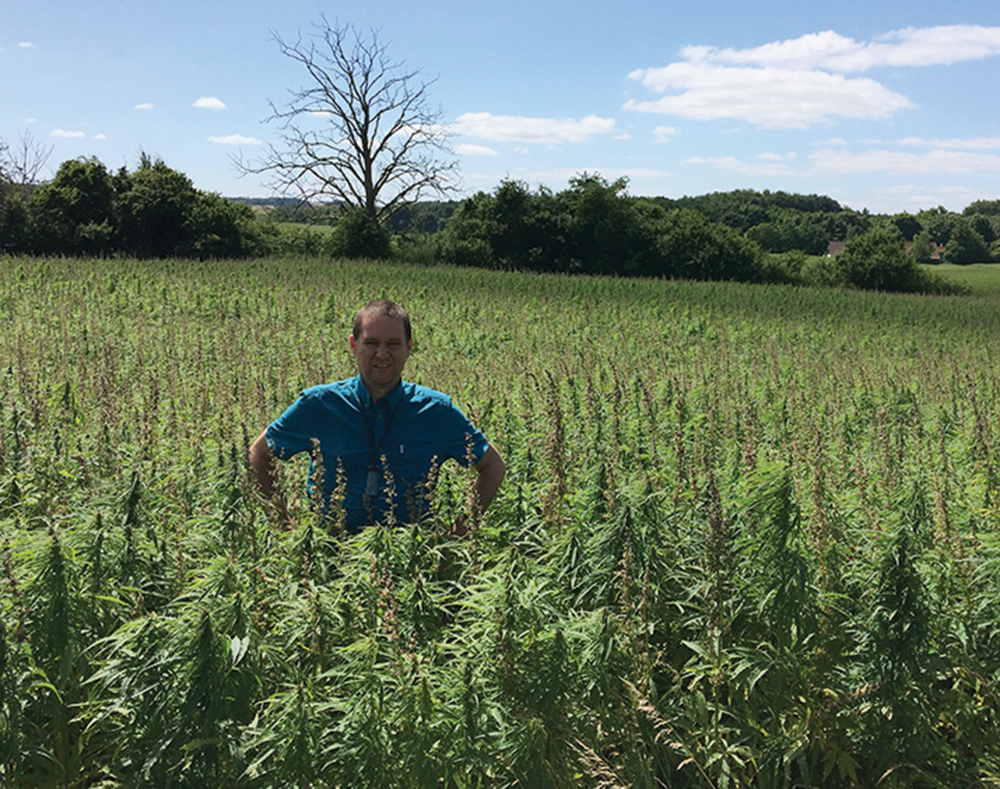Mahi Māra Summer Bugs, herbs and health
Dec 19, 2017

Hei Mahi Māra – A beginner’s guide to growing organic vegetables
Nā Tremane Barr
 Summer is a great time to relax in the māra enjoying the fruits of one’s mahi, and leaving the worries of the world behind. In this issue, I discuss recent research showing an insect Armageddon (Insectageddon) in progress, primarily driven by massive pesticide use. On a positive note, lemongrass is a great herb to grow that can naturally help relieve feelings of worry and stress. Unfortunately, the herb most successful at relieving stress, Cannabis sativa, is still not currently able to be grown legally. However, there is some light at the end of a very smoky tunnel for this king of all herbs.
Summer is a great time to relax in the māra enjoying the fruits of one’s mahi, and leaving the worries of the world behind. In this issue, I discuss recent research showing an insect Armageddon (Insectageddon) in progress, primarily driven by massive pesticide use. On a positive note, lemongrass is a great herb to grow that can naturally help relieve feelings of worry and stress. Unfortunately, the herb most successful at relieving stress, Cannabis sativa, is still not currently able to be grown legally. However, there is some light at the end of a very smoky tunnel for this king of all herbs.
Insectageddon
Love them or hate them, bugs are in full swing in the summertime, providing ecosystem services which keep the natural environment in balance. In an organic māra, it is necessary to provide space for biodiversity that can host both predator and prey. This helps keep a healthy balance, and to avoid as much as possible the need for any insecticide. “Beneficial plants” are havens for predator insects that eat pest insects in the māra. These plants include alyssum, calendula, nasturtium, and phacelia, plus many others.
Unfortunately, having too few insects rather than too many is becoming a serious problem. A recent German study found that over the past 27 years there has been a 76% decline in flying insect biomass in the European landscape. New terms have been coined to describe the phenomenon, such as Armageddon, Insectgeddon, and Insectageddon, used interchangeably in news stories. I witnessed the signs of this insect decline on a recent trip to Denmark. We lived in a rural farming community in Denmark in the 1990s when it was very common to have lots of bugs flying about and making a mess on our car windscreens, particularly in summer. However, on this latest trip we drove our rental car across the countryside and there was hardly any bug strike on the windscreen, compared to the times I previously lived there.
Remember, bugs are our friends. We just need to make some room in any māra for flowering species in particular, and have healthy soil (compost, lime and minerals) so the plants can naturally resist any potential pests.
While habitat loss is one factor, the main suspect is the increasing use of pesticides (e.g. herbicides containing glyphosate), with it increasingly bio-accumulating in the environment and the species that live there. For example, last year 8.6 billion kilograms of glyphosate (Roundup) was sprayed on planet Earth, with its use doubling every six years. This is primarily driven by increasing GMO crops, and as a desiccant to kill off plant material just before harvest e.g. wheat, potatoes etc. That’s 0.53kg of glyphosate per hectare on all cropland worldwide. And people wonder why an Insectageddon is happening? And why human cancer rates are going up, amongst many other illnesses that have rapidly increased with the introduction of GMO crops by pesticide companies to sell more glyphosate? Science like this is driving the European Union’s attempt to ban glyphosate and promote organic agriculture (if only it were so in Aotearoa).
So remember, bugs are our friends. We just need to make some room in any māra for flowering species in particular, and have healthy soil (compost, lime and minerals) so the plants can naturally resist any potential pests.
Lemon balm
After that unwelcome news, it’s nice to know we can use our māra to grow plants that reduce stress and improve one’s mood. The herb lemon balm (Melissa officinalis) is a medicinal powerhouse well known for its ability to be soothing both mentally and physically. It is high in trace minerals such as boron, manganese, copper, chromium, molybdenum, selenium, and iron. It contains large amounts of silica, and has anti-parasitic, anti-viral, and anti-bacterial properties. As well as this, it has bioactive phytochemicals and alkaloids that reduce inflammation, calm the digestive tract, reduce bladder inflammation, and detoxify the liver, spleen, and kidneys. When made into a tea it can also help reduce feelings of stress, and promote better sleep, with a cup before bed. It is also used in salads, and as flavouring for chicken and fish dishes.
Lemon balm is a perennial herb that is relatively easy to grow. In fact, it can become a bit of a weed problem if allowed to go to seed. This makes it easy to grow from seed in spring to early summer or late summer to early autumn. Usually it is easiest to begin by buying a seedling at a garden store. It grows up to 100 cm in height, and requires 30 cm spacing between plants. It likes to be planted in compost-rich, moist, and well-drained soil. It can also be grown in pots. After taking a couple of months to become established, picking leaves to make tea encourages it to grow even more. By autumn it can be totally harvested by cutting the stems off at about 5–10 cm above the soil. The leaves can then be dried and stored for later use. In the second full season, it should be possible to fully harvest it at least twice, with the extra addition of compost each time it is cut down. An additional benefit of Lemon Balm is that when it flowers, the bees and other flying insects love to visit it.
Medicinal cannabis – progress
Sometimes one needs something a bit stronger than lemon balm to help relax, particularly with something as serious as a cancer diagnosis. An interesting story I came across recently was the case of a young boy in Britain who was dying of leukemia and whose family had tried everything the medical system had recommended, all of which had failed e.g. chemotherapy and bone marrow transplants. As the boy was dying in a hospice, his parents decided to illegally buy cannabis to make their own oil to give to him, just to help ease his pain while he died. However, once they started giving him the cannabis oil, he started to recover and today is very much alive and well, due largely to the cannabis.
The recent election of a new government is a new hope for the legalisation of cannabis for medicinal purposes. The government proposes to introduce a bill to parliament to start this process by February 2018. However, what form this might take remains to be seen, as the Greens have an existing bill that includes the right to grow cannabis for one’s own personal use. If the government only proposes to legalise expensive pharmaceutically-produced cannabis products by prescription (like Sativex) which only a few can afford, then this will be no progress at all and people will have to continue engaging in illegal activity simply to alleviate pain and support their health.
When in Europe recently, it was possible for me to legally buy cannabidiol (CBD) at a health food store and online. Whether the government will be progressive enough to legalise the personal cultivation of high CBD/low THC varieties of cannabis and the sale of CBD oil freely to the general public remains to be seen. My own recent MRI scan has shown that the tumor in my pancreas is to all intents and purposes dead, and has slightly reduced in size (120 mm to 110 mm), with my liver still clear of previous cancerous lesions.
Some don’t get the miracle of their cancer completely disappearing, but some of us do get the miracle of being alive and healthy, even if we have to carry the scars. Tihei Mauri ora!
Resources
More than 75 percent decline over 27 years in total flying insect biomass in protected areas
http://journals.plos.org/plosone/article?id=10.1371/journal.pone.0185809
Warning of “ecological Armageddon” after dramatic plunge in insect numbers
https://www.theguardian.com/environment/2017/oct/18/warning-of-ecological-armageddon-after-dramatic-plunge-in-insect-numbers
A Weed Killer Is Increasingly Showing Up in People’s Bodies
http://time.com/4993877/weed-killer-roundup-levels-humans/
EU decision casts shadow over widespread use of glyphosate weedkiller in NZ
https://www.stuff.co.nz/marlborough-express/news/98272658/eu-decision-casts-shadow-over-widespread-use-of-glyphosate-weedkiller-in-nz
GMOs Revealed documentary
http://www.gmosrevealed.com
Hei Mahi Māra – Marijuana – Medical Miracle or Reefer Madness?
https://ngaitahu.iwi.nz/our_stories/hei-mahi-mara-2/
Cannabinoid research
https://echoconnection.org/education/
The Sacred Plant – medicinal cannabis documentary series
https://thesacredplant.com
Medical Cannabis Functional Forum
“I gave my dying son cannabis to ease his cancer symptoms and he made a miracle recovery” reveals mum
http://www.mirror.co.uk/news/uk-news/i-gave-dying-son-cannabis-10103387
The Boy in 7 Billion
www.amazon.co.uk/Boy-7-Billion
Tremane Barr is Ngāi Tahu/Kāti Māhaki ki Makaawhio. He has been gardening organically for more than 20 years. Tremane is currently a Research Fellow based at the Ngāi Tahu Research Centre at the University of Canterbury and is working on the Raumanga Rōnaki Mahinga Kai project.


